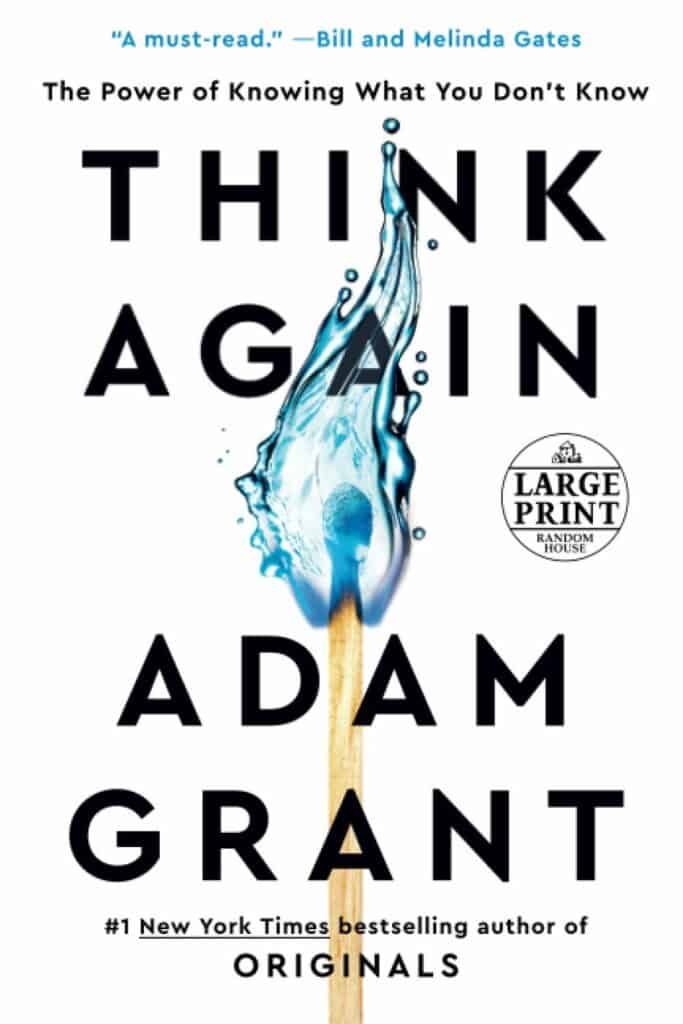Book: Think Again: The Power of Knowing What You Don’t Know
By: Adam Grant
Reviewed by: Colleen Jones
The Premise: In Think Again: The Power of Knowing What You Don’t Know, organizational psychologist, Adam Grant, uses his enviable talent for compelling storytelling to promote the practice of constantly re-evaluating what we think we know, as a way to achieve greater success at work and in life. In Part One, Grant shares several examples where individuals have made grave and sometimes, dangerous choices, based on what they thought they knew. Further, Grant argues that if these individuals had had the insight to re-consider their own opinions and assumptions, and question why they might be wrong, they may have met very different outcomes.
With infectious enthusiasm Grant encourages his readers to approach their opinions like scientists rather than preachers; looking for evidence to prove ourselves wrong rather than surrounding ourselves with people and situations that will only validate and further embed our thinking. In Part Two and Three of the book, confident that he has won his reader over to the idea of “re-thinking” our own biases, beliefs, knowledges and assumptions, Grant shifts gears slightly to focus on how we encourage this thinking in others, and then how we try to promote re-thinking at a group or organizational level. Think Again is an easy and quick read, with great examples and storytelling to prompt the reader to reflect on their own approaches in both conversations and relationships. Be sure to check out the Appendix for a helpful resource called “Actions for Impact.”
The Bottomline: As a social psychology junkie I never tire of learning about why people behave the way they do and discovering strategies for promoting self-reflection and development. I especially enjoyed Part One of this book where Grant presents compelling evidence that challenges us all to re-evaluate our biases and assumptions. Inviting us all to change our minds when better evidence emerges rather than digging our heels in further, Grant argues that if we aren’t changing our minds regularly, then we are probably wrong a lot of the time. As a coach, Part Two and Part Three of the book really resonates, as Grant encourages a coach approach (although he doesn’t call it that!) of leading with curiosity, active listening, asking genuine questions to understand fully and leading with areas of alignment. As we navigate a post-pandemic world where so many things have changed, this book is a great primer for shifting our mindsets. Think Again both normalizes how we become committed to our own opinions, while simultaneously inspiring us to re-think them, giving us practical strategies for doing just that. After all, as Grant aptly concludes: the person most likely to persuade you is you.
Recommendation: Inspirational, quick read for anyone who is looking to broaden their mindset to achieve greater results.




